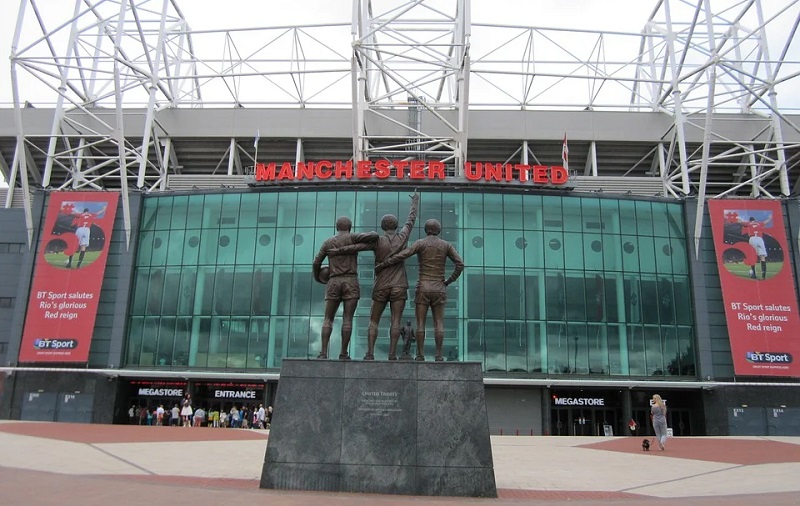Manchester United are expected to emit the highest amount of Co2 emissions this season compared to other Premier League clubs, a new study has revealed.
Despite the Red Devils’ absence of Premier League silverware, they top the carbon footprint table and will produce an estimated 58731.03 lbs of carbon during their Europa League campaign.
The research conducted by Online Betting Guide calculated the footprint of each top-flight team competing in Europe this season.
The overall figures for United could rise depending on how far they progress in the tournament.
Erik Ten Hag’s side have faced away trips to Romania and Cyrpus in the competition so far and are yet to travel to Spain.
Neighbours Manchester City come second on the list and will travel around half the distance of their rivals when competing against Sevilla, FC Copenhagen and Borussia Dortmund in the Champions League.
The research is based on all clubs travelling to each away fixture with a squad of 30 made up of players and staff.
| Team | Total Miles Travelled | Total Team CO2 Emissions (lbs) | Carbon Footprint Per Journey (lbs) | CO2 Emissions Per Individual (lbs) | Competition |
| Man United | 8,544.00 | 58731.03 | 19577.01 | 1957.701 | Europa League |
| Man City | 4,340.00 | 47308.1 | 15769.36667 | 1576.936667 | Champions League |
| Chelsea | 4,178.00 | 46630.0261 | 15543.34203 | 1554.334203 | Champions League |
| West Ham | 3,966.00 | 44520.3 | 14840.1 | 1484.01 | Europa Conference League |
| Tottenham | 3,856.00 | 42625.4932 | 14208.49773 | 1420.849773 | Champions League |
| Arsenal | 3,798.00 | 40154.12 | 13384.70667 | 1338.470667 | Europa League |
| Liverpool | 3,376.00 | 37961.18 | 12653.72667 | 1265.372667 | Champions League |
Last year United reinforced its commitment to environmental sustainability through a partnership with the Renewable Energy Group.
At the time, Chief Operating Officer Colette Roache, said: “We are already an environmental leader among football clubs after 12 consecutive years of reduction in our greenhouse gas emissions.
“We will now work with Renewable Energy Group to explore ways of shrinking our carbon footprint further. Together, we can make a difference in the fight against climate change, and the goal of developing a greener, cleaner planet.”
The Red Devils were also amongst the first clubs to launch a carbon reduction programme in 2008 – and since then has reduced annual emissions by 2,700 tonnes.
Whilst they and many others have made efforts to lower their emissions and help tackle climate change, the new study shows that there’s a long way to go.
League One side Forest Green Rovers are the most environmentally conscious in the UK and have gained international recognition for their efforts to become a sustainable club.
In 2020, they became the first side to become completely carbon neutral by using various countermeasures, such as solar-powered lawn care equipment and electric vehicle charging points.
The future is green and perhaps Premier League clubs can use them as a blueprint for sustainability.




